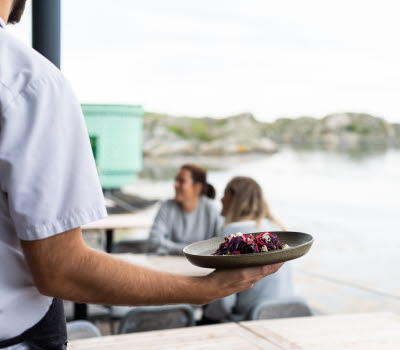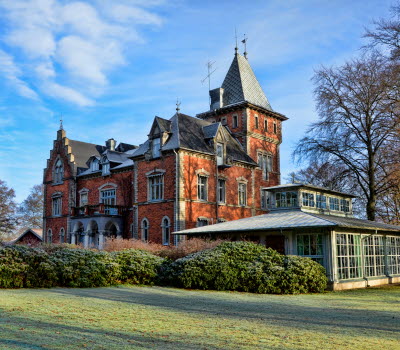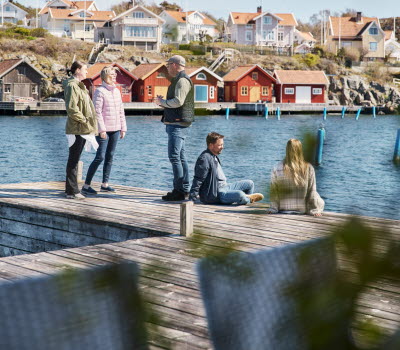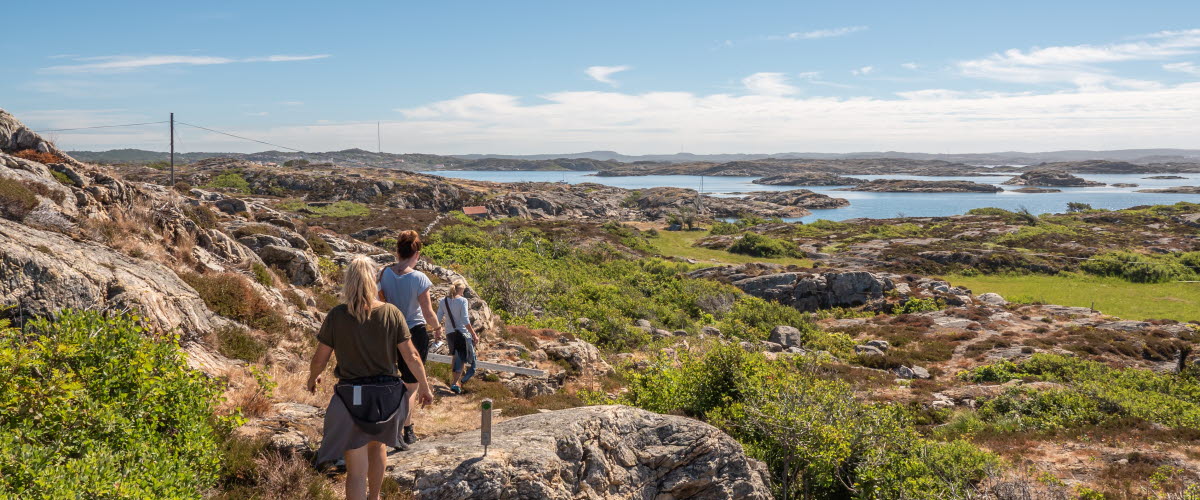The Right of Public access
Sweden’s unique Allemansrätten (The Right of Public Access) gives us the freedom to roam just about anywhere in the countryside as long as we do not disturb or destroy. Remember to respect animals, nature and other people at all times.
Allemansrätten is a historic custom law that gives Swedish residents and visitors a unique opportunity to go almost anywhere they want in Swedish nature. You can use this public access right to go for a walk, kayak or pick berries in the forest. Nature means a lot to the Swedes, and therefore this custom is an important part of Swedish culture.
Hike, bike and ride
You can hike, bike and ride a horse on trails in nature and on individual roads. Unless otherwise signed, you can ride a bike or horse on exercise tracks and hiking trails, but keep in mind that those who walk or run have priority.
Consider the following:
- Don’t enter on someone residential property or agricultural land where crops or other plants have been planted.
- Don't go so close to houses that you disturb those who live there.
- Close the gate behind you if you walk through a pasture.
- Take care of nature and avoid cycling and riding on wet fields that are easily damaged.
Accessibility
Allemansrätten applies to everyone! If you need to use an electrically powered wheelchair, or other assistance device, you are allowed to use it in nature. Just keep in mind that wheelchairs can damage sensitive grounds, so avoid wet and soft areas. Use roads and trails instead.
Swim and paddle
Allemansrätten applies to both land and water. You can swim on beaches, go boating and canoeing/kayaking almost anywhere, moor your vessel and stay overnight at any beach that isn’t privately owned.
Consider the following:
- Just as on land, those travelling on water should consider the surroundings.
- Find out what rules and regulations apply to the waters you intend to travel in.
- Along the West Coast, there are many bird or seal protection areas where it is forbidden to ascend or even stay on the water within a certain distance of the beach for a certain period of the year. More information about these areas can be found in the folder "Bird and seal protection areas on the West Coast".
Stay overnight & light a fire
Pitch a tent in nature for a day or two! Maybe you would also like to cook on an open fire? Lighting a campfire is a wonderful feature of outdoor life, but Allemansrätten does not include the right to light a fire. Important things to keep in mind when camping and lighting campfires:
- Don’t camp near anyone’s residential property. Those who live there should not be disturbed by your stay in nature.
- It’s best to use already prepared fireplaces, or bring a camp kitchen.
- If you make a fire, sand and gravel offer good surfaces to base your fire on. Do NOT light a fire directly on cliffs or large boulders as they can crack!
- Make sure the fire does not risk spreading or damaging land, animals and plants.
- Feel free to pick up fallen pine cones and branches from the ground, but do not break anything from growing trees and shrubs.
- Make sure the fire is properly extinguished before you leave the site.
- Keep track of any fire prohibitions by visiting the local municipality's website! Please download the app "Brandrisk ute" to keep track of the fire risk in the area you are in.
More information on campfires and Allemansrätten can be found in the brochure “Fire and Allemansrätten: things to keep in mind when lighting fires”.
Bring your rubbish home!
All littering is prohibited. Broken glass, cans, plastic, fishing lines, disposable barbecues and other debris can injure both humans and animals. Keep in mind that those who come after you want the same amazing experience of a pure, beautiful nature as you have just had. Tips for a rubbish-free stay:
- Remove as much packaging material as possible from food and snacks before heading out.
- Use already prepared barbecue areas instead of taking a disposable barbecue.
- Bring cutlery from home.
- Plates and mugs are available in various durable materials that can be used several times and which are more pleasant to eat and drink from than disposable items!
- Bring a bag to collect any rubbish during your stay in nature.
Pick flowers, berries and mushrooms
Take a walk through the forest, pick some blueberries and chanterelles. Stroll across the cliffs by the sea and pause to pick some blackberries. Maybe you want to bring a bouquet of wildflowers home to extend the memory of your trip? Just be aware that:
- You are allowed to pick wild flowers, berries and mushrooms, except for those that are protected.
- You must not break branches from living trees and shrubs.
Sometimes special rules apply to protected areas, such as national parks and nature reserves. More information about these areas within Västra Götaland can be found on the County Administrative Board's website.
Bring your dog
You are welcome to bring your dog into nature, but in order to protect animals and birds in the wild, you must have a full control of your dog, which usually means using a leash. From 1 March to 20 August, this is particularly important as this is the time the animals usually have babies. In most nature reserves and in all national parks, leashes are mandatory and in some of them dogs are not allowed at all. More information about dogs in nature can be found here at the Swedish Environmental Protection Agency while regulations for various nature reserves in Västra Götaland can be found here at the County Administrative Board.
Fishing and hunting
Neither fishing nor hunting is part of Allemansrätten. You are allowed to fishing freely with rod along the ocean coast, but you will need a fishing license for most lakes. You need to find out which rules apply – for example, where you need a fishing license. More information about sport and recreational fishing can be found at the Marine and Water Authority.
You may spend time in nature even during hunting season, but be sure to consider the hunters. You can find more information about Allemansrätten and how it is applied in relation to hunting and fishing here at the Swedish Environmental Protection Agency.
Driving in nature
Allemansrätten does NOT allow driving in nature because it can damage the environment. More information on motor traffic in nature can be found here at the Swedish Environmental Protection Agency.
Protected nature and other areas
In Sweden's national parks, nature reserves and other animal and plant protection areas, there may be special provisions for protecting animals, nature and culture. The regulations, which are called föreskrifter in Swedish, are often placed on signs at the entrance to a protected area, together with other information that will tell you about the area's natural and cultural values. You can read more about nature reserves and other conservation areas in Västra Götaland on the County Administrative Board's website.
In urban areas such as city parks and on golf courses, Allemansrätten is often limited. You need to find out what applies to each area; this information is usually found on the respective municipality's website.
Do you want to read more about Allemansrätten? For all information, please visit:
www.naturvardsverket.se/allemansratten










